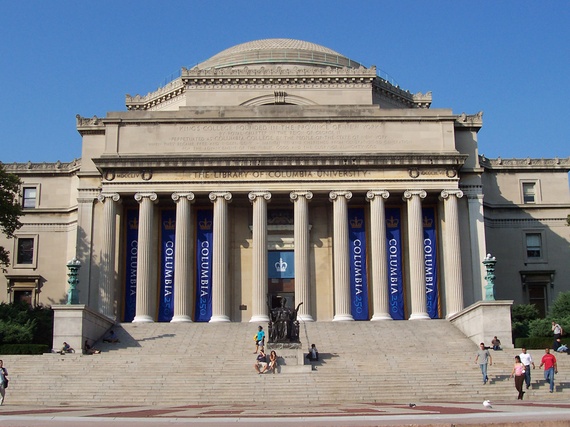Colleges must remain closed for the health of the nation

Photo courtesy of creative commons
A reduced number of students attending Columbia University in March due to COVID-19.
May 27, 2020
The COVID-19 Pandemic has been detrimental to millions of people across the world, but the most impactful effect for students has been the loss of a traditional school structure. Higher-level education institutions, like colleges and universities, are facing troubling decisions on whether or not to open their campuses to students in the fall. They must take into account living situations and large, globally diverse student bodies. Keeping colleges and universities closed would mean more lives would be saved and the curve would flatten quicker.
At the moment, nearly all post-secondary institutions have shut down their campuses until further notice and classes have migrated online. But as the nation gradually reopens, various methods of returning to school have sprouted up. Some colleges, such as the University of North Carolina, have hybrid reopening plans which include a mix of in person and online classes that limit how many students can be in one space at a time. Others, such as Radford University and Baylor University, have announced that they plan to reopen in the fall and start in person classes once again.
It is important to consider that not all states are in the same situation. Some have had a decrease in cases over the past week while others have had steady increases. Senior Emma Sprague, who will be attending West Virginia University in the fall, said, “I personally don’t think, even with the low number of cases, that it should reopen.” Even with a low number of cases, viruses can rebound and there is no guarantee that a low case count means everything is in the clear.
“With colleges, people come from all over the country and you can have a place with a low case number, all of a sudden the cases skyrocket because one person or a couple of people came from a state with a high number of cases and got everyone infected.” Universities are special in that students from all over the country come together. For instance, 83 percent of the University of Richmond’s student body is out-of-state. Bringing students from areas affected differently by the pandemic can cause disastrous consequences. If we treat all states like they are in the same place and if certain colleges feel any pressure or discrimination from others because they refuse to reopen, then we risk increasing the spread and not effectively combating the virus.
Senior Gianluca Umama said, “I will be attending NYU in the fall and I’m going to New York City. It’s a little concerning, but I support, personally, New York University opening because they have a firm grasp on the situation… They’re letting students take whatever approach they deem the safest.” Students from all around the country are in different situations and generalizing them can make this much worse. “They’re offering so much and providing students with options which is something that I appreciate and I hope other schools take advantage of.
As a senior who will be attending the College of William and Mary in the fall next year, sacrificing a semester would be worth it to end this pandemic. Colleges should not be forced to reopen if they are not ready and they should take into account their local situation. For colleges and universities in states such as New York, should be very careful in reopening as even if the cases are declining, the curve can rebound and large universities can act as perfect breeding grounds.
There is not a clear answer to this question as each state is different and each institution has differing amounts of students. Colleges need to be smart, resourceful, and students need to realize that we are all in this together and that we must not protest against whatever choices are made. We are protecting ourselves and everyone else and college students are no different. Avoidable cases and deaths should remain avoidable, and if a college deems the situation too dangerous or dire for students to return in the fall, then better have Zoom installed.

